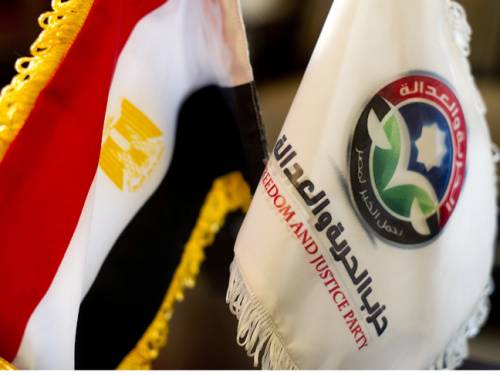CAIRO: Arab states remain widely divided over how to deal with Syria’s crackdown on protesters after a peace plan brokered by its neighbors failed to stem violence, and there is little likelihood a meeting this week will bridge the gap.
Several countries oppose bringing serious pressure to bear on President Bashar Al-Assad and it looks unlikely that foreign ministers will freeze Syria’s membership of the Arab League at a meeting in Cairo on Saturday, officials due to attend say.
If Arab states isolated Syria, that would help Assad’s sternest critics in the West gain a broader consensus for tougher sanctions and, perhaps, some form of intervention.
Saudi Arabia leads a group of Gulf states including Qatar, Oman and Bahrain that are ready to increase the pressure on Assad, an ally of their rival Iran.
Diplomats say they are opposed by countries such as Yemen, which is in the grip if its own uprising; Lebanon — where Syria’s influence looms large; and Algeria, seen as more sympathetic to Assad and nervous about the message any intervention in Syria would send to its own frustrated population.
The continued bloodshed on Syria’s streets since an Arab Peace Plan was brokered last week seems to have done little to shift the mood in favor of tougher action.
“The League might ask for Syria to allow it to monitor the situation by itself through representatives sent there for a set short period,” an Arab diplomat told Reuters.
Freezing Syria out of the Arab League was unlikely to happen this weekend, he said, even though that would only require a majority of countries to be in favor.
“If the monitoring fails, the League could discuss freezing Syria’s membership or ask for United Nations intervention but it will not ask for military intervention as this has to be approved by all 22 countries,” the diplomat added.
Opponents of the Syrian government have staged a noisy sit-in outside the Arab League’s headquarters in Cairo for weeks to decry what they see as a timid response to Assad’s crackdown.
“Something must be done because otherwise the Arab League will lose its credibility among Syrians and the Arab world,” Walid Al-Bunni, a prominent Syrian opposition activist, said.
Another Arab League diplomat admitted the body was unlikely to raise the pressure on Saturday enough to satisfy most Arabs.
“I think there will be a strong decision that reflects the anger and worry of Arab states regarding Syria, though maybe not to the level of the aspirations of Arab peoples,” he said.
Human Rights Watch accused the Syrian government forces of committing crimes against humanity in the restive province of Homs.
It urged Arab League delegates meeting on Saturday to suspend Syria from their organization, ask the United Nations to impose sanctions on individuals responsible, and refer Syria to the International Criminal Court.
“The systematic nature of abuses against civilians in Homs by Syrian government forces, including torture and unlawful killings, constitute crimes against humanity,” the group said in a statement accompanying the report on Friday.
HRW said Syrian security forces had killed at least 104 people in Homs since Nov. 2, when the Syrian government agreed an Arab League plan aimed at ending the violence and starting a dialogue with Assad’s opponents.
Those deaths followed the killings of at least 587 civilians in Homs between April and August, the group said, the highest death toll of any single governorate in the country.
Arab countries avoided any public pronouncements on Syria in the first months of the uprising but Saudi Arabia, Kuwait and Bahrain have withdrawn their ambassadors and Libya’s new rulers have declared support for the Syrian opposition.
Western powers say Assad has shown no desire to reform and must step down, but Russia and China oppose tougher measures against his government.
Any sign that Syria’s Arab neighbors are shifting in favor of foreign intervention to stop the bloodshed might cause Russia and China to soften their stance, as they did in March to allow NATO to impose a no-fly zone over Libya.
The NATO mission proved decisive in the overthrow of Libyan leader Moammar Qaddafi.
“This meeting is an attempt led by the Gulf oil states to send the Syrian dossier to the United Nations,” Egyptian political analyst Nabil Abdel Fattah said.
He said the diplomatic charge is being led by Saudi Arabia, which wants to remove Assad because he is Iran’s strongest supporter in the region.
But the chances seem slim that the Arab League will make a clear appeal for foreign intervention, partly because of fears that Syria — and its neighbors — could see sectarian conflict if the balance tips in favor of Assad’s opponents.
Sunni Muslims form the majority of Syria’s 20 million population and members of Assad’s minority Alawite sect control the levers of power.
In neighboring Lebanon, Prime Minister Najib Mikati’s government includes ministers from Hezbollah and other pro-Syrian parties, and officials say any support from Beirut for tough measures against Damascus could stir domestic tension.
“When we take a decision in support of Syria, we do so because whatever happens in Syria will affect us,” Foreign Minister Adnan Mansour told a Lebanese television station earlier this week.
Further dimming the likelihood of concerted action, many countries are staying non-committal towards the violence in Syria, possibly because the outcome is still so unclear.
Most Arab states took a similar stance with Libya during its eight-month civil conflict, only throwing their weight behind the Libyan rebel council when most of Tripoli had fallen and Qaddafi’s defeat was beyond doubt.
“There are countries that have not yet had a clear position towards Syria like Egypt, Sudan, Jordan, Morocco and Mauritania, while Iraq and Somalia said they will go with whatever the majority of Arab states agree on,” a second Arab diplomat said. –Additional reporting by Ayman Samir, Omar Fahmy and Shaimaa Fayed in Cairo, Khaled Yacoub Oweis in Amman and Dominic Evans in Beirut.







